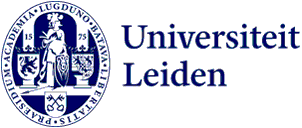
Ten lecturers obtain Senior Teaching Qualification
On 12 January ten driven lecturers obtained their Senior Teaching Qualification (SKO). Rector Magnificus Hester Bijl congratulated them in the Academy Building. We asked three of them how the SKO programme had benefitted them, what they think ‘good teaching’ is and what makes them so passionate about teaching.

Daan van der Es, Assistant Professor of Medicinal Chemistry
‘Before the SKO I told my colleagues: “It’s no big deal. All I have to do is write a portfolio.” Now I realise that it isn’t so easy after all to put your vision of teaching down on paper. It really gets you thinking about what exactly you’re doing in your teaching and why. I was full of new ideas and energy afterwards. It’s almost a shame that it’s linked to a qualification like this – as if you’re suddenly ‘done’ in your development as a lecturer.
‘I don’t think there is one type of good teaching: it really depends on the content, students, level, discipline and which lecturer is doing the teaching. I myself love being able to tell a story and talk to a group of students for half an hour uninterrupted. Other colleagues prefer to talk to small groups of students or do practical work in a lab. The main thing is that it fires up the enthusiasm of both the students and the lecturer.
‘Now I have more experience, I like coaching junior colleagues in developing and delivering their courses. This is a role that is needed at the University but it hasn’t yet been properly defined. The SKO can help increase awareness of this. Let’s take the time to improve our teaching and make it more fun and inspiring.’

Marleen Hessel, Pharmacotherapy Teaching Coordinator at LUMC
‘Good teaching triggers students’ intrinsic motivation and encourages them to ask questions and share their ideas. In my experience you can usually see from the students’ faces whether or not they find something educational and interesting. As a lecturer you are sometimes tempted to steer them in a particular direction but that often isn’t necessary. I regularly teach a combined group of pharmacy and medicine students. The interaction that almost spontaneously arises in both directions is great to see.
‘The SKO programme really inspired me. The discussions with different experts cause you to look afresh at your teaching. I am now revising the medical curriculum and can definitely use what I learned during the programme.
‘Before this I spent ten enjoyable years doing research but have concluded that teaching gives me more satisfaction. You get so much back from your students during the lessons. Their input and questions mean you keep on learning. Some topics come up every semester but each teaching moment is different. That is what I like most about this profession.’

Guido Band, Associate Professor of Cognitive Psychology
‘Sharing knowledge that I am enthusiastic about with others gives me energy. I always have more to say than will fit into a course. The good thing about our profession is that you give students the opportunity to follow their own path and specialise in certain themes or techniques. I like catering to all the different goals and ambitions. For me good teaching definitely isn’t one size fits all. My personal approach is: understand your goal and translate it to your method. In some courses I take a very didactic approach, for instance, whereas in others I offer more freedom.
‘I see the SKO as an important part of lifelong learning but I think much more stands to be gained. It would help if these kinds of milestone became part of human resources policy because at the moment lecturers don’t receive enough encouragement to do the SKO. Given the current plans for recognition and rewards, I think it is crucial to show that this qualification is part of your development as a lecturer. I want to set a good example by having done it.’
Alongside the three lecturers above, the following received their Senior Teaching Qualification on 12 January:
- Mark Leiser, Faculty of Law
- Ingrid Samset, Faculty of Governance & Global Affairs
- Hossam Ahmed, Faculty of Humanities
- Markus Davidsen, Faculty of Humanities
- Bruno Verbeek, Faculty of Humanities
- Marcellus Ubbink, Faculty of Science
- Monique van Velzen, LUMC

Tekst: Evelien Flink
Foto's: Marc de Haan
Senior Teaching Qualification
The SKO is a qualification for lecturers who play a leading role in the development and innovation of education at the curriculum level (i.e. beyond their own discipline). To achieve this qualification, lecturers must put together a portfolio that shows that they meet four final learning objectives:
- Conduct within the academic teaching environment;
- Creating and elaborating a didactic programme with a view to the context of a curriculum;
- Preparing and providing teaching;
- Impact on education within one or more degree programmes that extends beyond one’s own teaching programme.
In addition, an SKO candidate must be a lecturer who already has a Basic Teaching Qualification (BKO), has taught at the university level for at least five years in various subjects and years, and has applied a variety of educational methods in doing so. In addition, the lecturer must show that they have developed initiatives and made contributions that have an educational impact within one or more degree programmes transcending their own course or discipline. You can read more about obtaining an SKO here.
